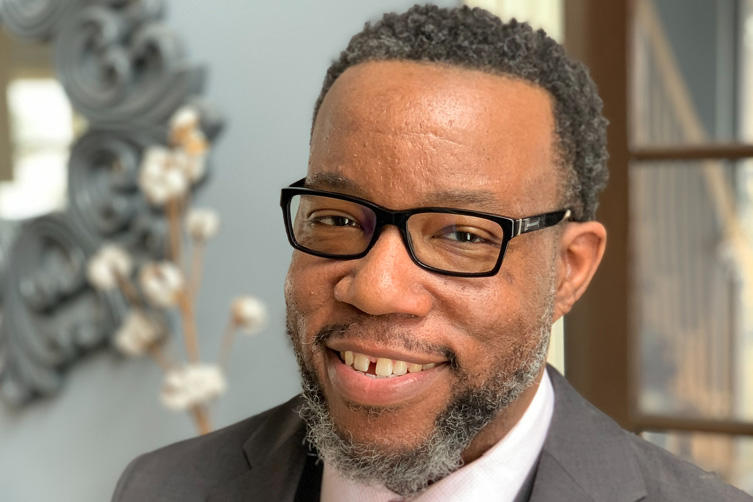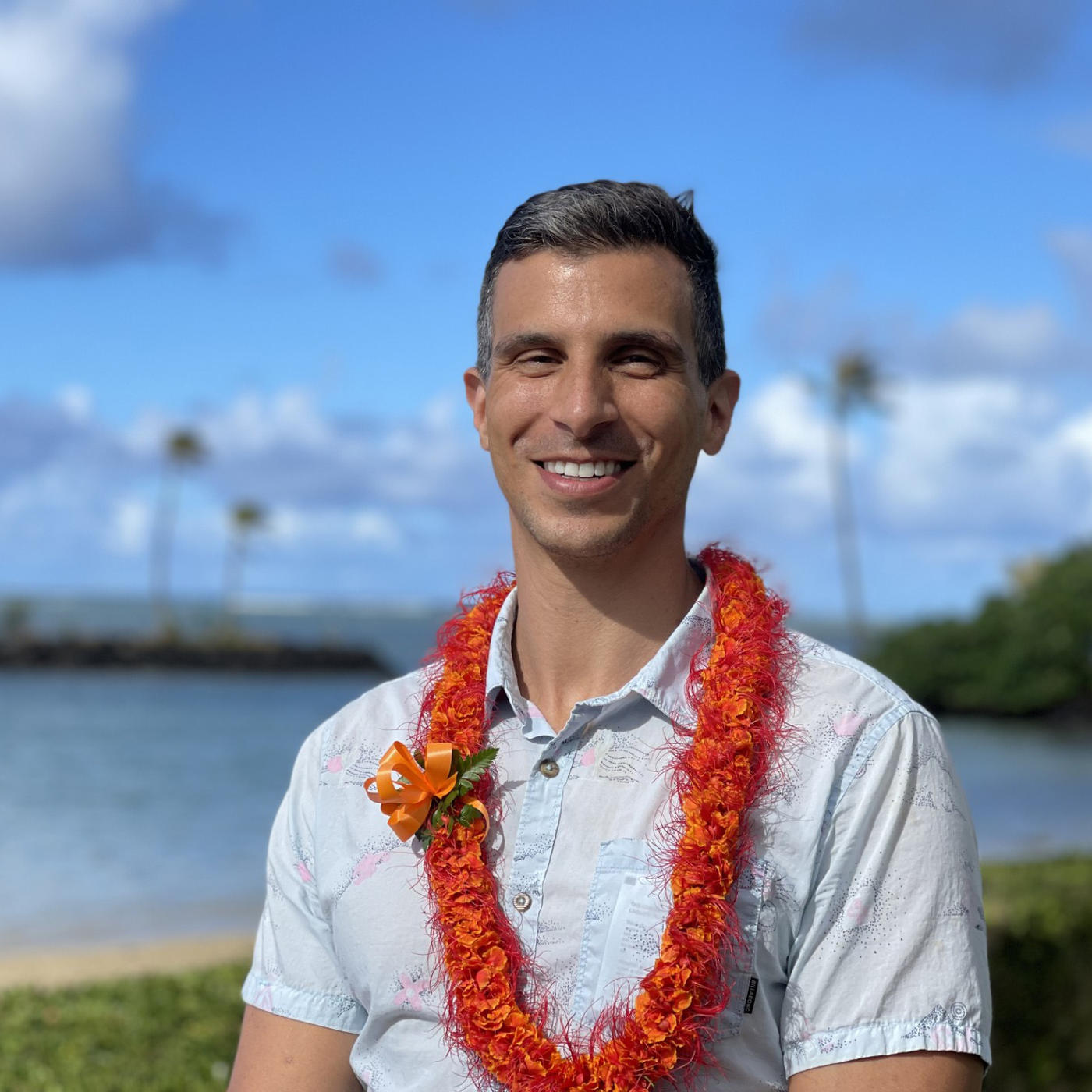Growing up the son of a single mother in the inner city of the south side of Chicago, American University of the Caribbean School of Medicine (AUC) alum Steven D. Jackson, MD ’06, saw poverty, gang activity and health disparities all around him. “I saw people who suffered from poor health simply because they didn’t have access to adequate healthcare. Most had little faith in the healthcare system, and many would wait until their health was at a dire stage to seek help.”
Dr. Jackson explains these early experiences are what inspired him to become a doctor.
“As long as I can remember, I felt like I had a calling to help people and promote health and healthcare access. People of color are more likely to experience poorer health due to a lack of access to quality healthcare, including preventative care, diagnosis and treatment. Many are suspicious of the healthcare system or give up when they can’t get access to good care. I knew I wanted to change that.”
FOLLOWING THE PATH TO A CAREER IN MEDICINE
An exceptional student, his path to medical school started with training at a math and science academy. He left his neighborhood to attend boarding school and soon had his sights on college. “When investigating careers, I became fascinated with orthopedic medicine. I knew it would be a tough road to get there, but I was determined to make it.”
After completing a degree in biochemistry at Oberlin College in Ohio, he began his medical education journey when he was accepted at AUC.
“I wanted to prove to myself that I deserved to be there. It was some of the most challenging academic work of my life, but I was there to take care of business. I felt like I was battle-tested from my past life experiences.”
Consequently, he got an A in every class except one and ranked second in his graduating class. “I couldn’t wait to get to class. Anatomy and systemic pathology were my favorite courses and quite rigorous. My classmates and professors had a powerful impact on my ability to be successful at AUC and in my career.”
SWITCHING HIS SPECIALTY FINALLY OPENED DOORS
After medical school, a year of general surgery at the Mayo Clinic, and two years of orthopedic surgery research, Dr. Jackson hoped the door would open to a career in orthopedic medicine. “I thought it was ortho or bust for me. However, it’s a very competitive field and that door wouldn’t open.”
Feeling discouraged and questioning his goals, it was while watching a television show that Dr. Jackson learned of a young quadriplegic woman who learned to paint with her teeth. “The story of this woman who turned a tragedy into a triumph inspired me. I think switching my specialty to physical medicine and rehabilitation was divine intervention. I came to realize helping people with spinal cord injuries was my purpose.”
At the Mayo Clinic, Dr. Jackson met an investigator doing spinal cord injury research. “I was now fully invested in pursuing a career in spinal cord injury medicine, and heard about a service that informs you of any open residency spots nationwide.”
Having already completed his residency and an internship in surgery at the Mayo Clinic, he knew that he needed to open himself up to other opportunities and successfully applied for a spot at Virginia Commonwealth University Medical Center, one of the top programs in the U.S. “I was back in patient care and pursuing the area of medicine I wanted to enter most.”
While there, Dr. Jackson worked with William McKinley, MD, a well-published spinal cord injury rehabilitation physician, went on to complete a fellowship, and became chief resident in physical medicine and rehabilitation.
LEADERSHIP, RESEARCH AND PATIENT CARE
Now Chair of Physical Medicine and Rehabilitation and clinical director of spinal cord injury medicine at HealthPartners Neuroscience Center affiliated with Regions Hospital in St. Paul, Minnesota, Dr. Jackson provides leadership for all clinical inpatient and outpatient rehabilitation services. Not only does he collaborate with health partners and work on growing the Rehabilitation Services Department, but he also fosters collaboration with other specialties, such as orthopedic and neurosurgery. “I work to ensure that the care we deliver is the best for our patients.”
Dr. Jackson remembers a patient with metastatic prostate cancer that had spread to his spine and was no longer able to walk. “This patient came to the rehab unit to get stronger, so when he went home, he would need as little assistance as possible. He said to me, ‘I consider you one of my friends’. Though he has since passed away, I will always remember his strength.”
Although patient care is his first love, he continues to do research. Currently researching the effect of exercise on chronic inflammation and spinal cord injury, Dr. Jackson is collaborating with a tech company to devise a robotic exoskeleton that serves as a hand for people who have poor hand and arm function due to injuries.
WORKING FOR HEALTH EQUITY AND INCLUSION
A frequent theme in Dr. Jackson’s medical journey centers on the social determinants of health and health equity. “The healthcare system has often failed patients of color in the past and many patients continue to feel that way," he says. "Building trust and operating in cultural humility is enormously important to have good patient outcomes. We need to repair a history of damage and that is part of the healing process.”
As co-chairman and medical advisor for health equity, Dr. Jackson leads an inclusion, equity and anti-racism cabinet at the HealthPartners organization that partners with other physicians and other senior leaders. His work in the field includes a research project, “Identifying Racial and Ethnic Outcome Disparities After Discharge from Acute Inpatient Rehabilitation,” which explores the effect of race or ethnicity and disparities in care. In addition, he co-hosts a podcast, “Off the Charts: Examining the Health Equity Emergency,” that explores the social determinants of health and health equity issues.
A 2022 AUC Commencement speaker, Dr. Jackson feels his AUC educational experience was enriched by the diversity he saw on campus.
“The diverse student body and faculty increased my determination to work for equity and inclusion in healthcare after graduation. AUC students have the opportunity to advance cultural competence and address health disparities. This will change the face of healthcare and deliver better care to patients.”
Interested in learning more about how AUC can support your dreams of making a difference in healthcare? Request more information here.
Related Articles:





